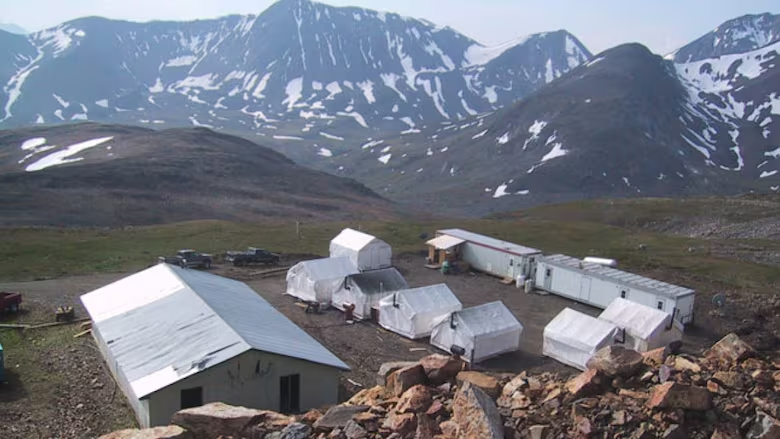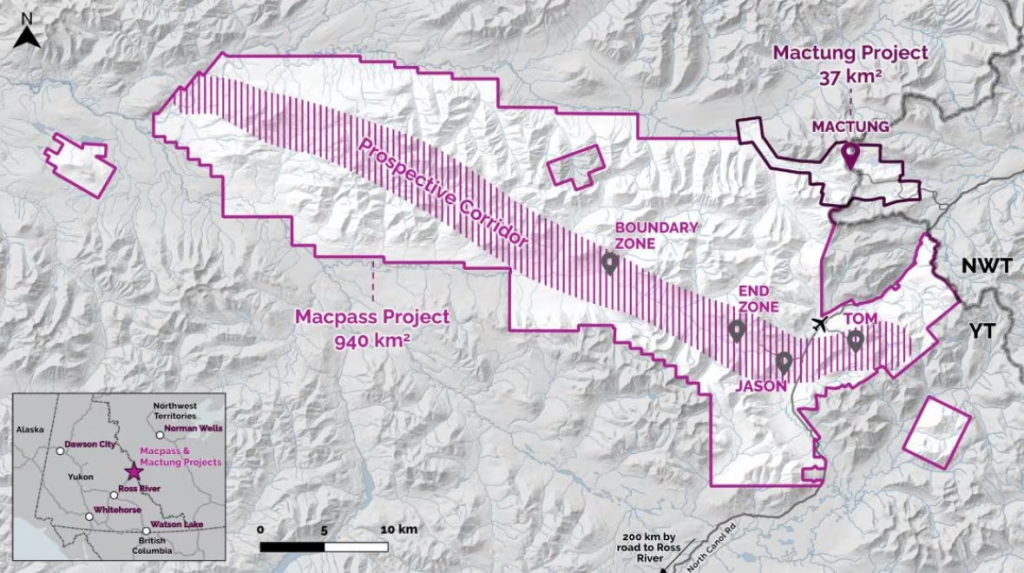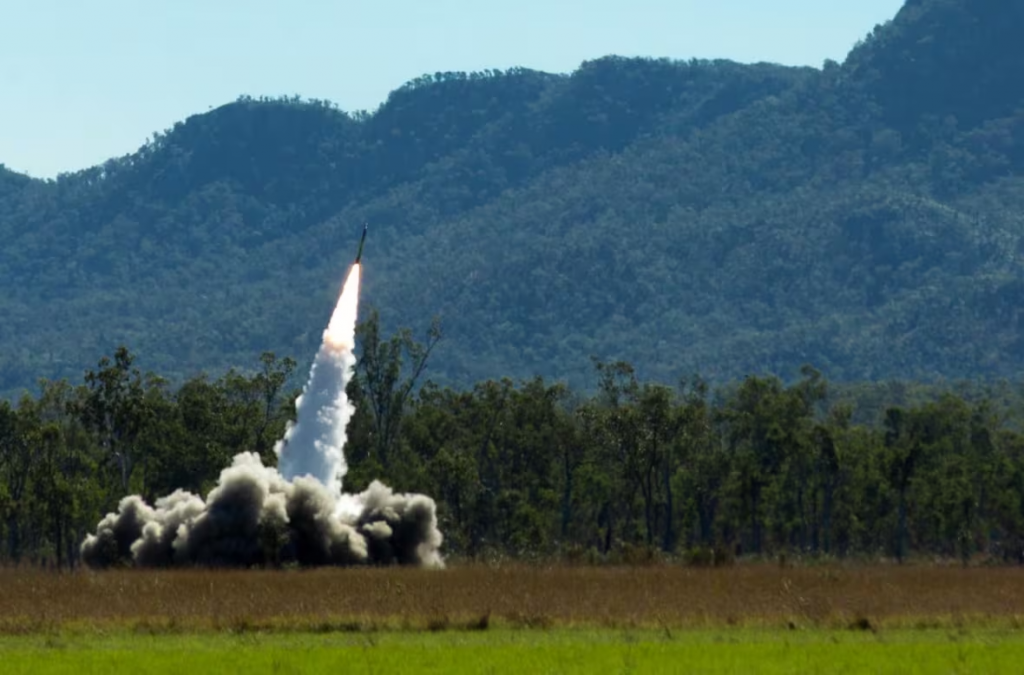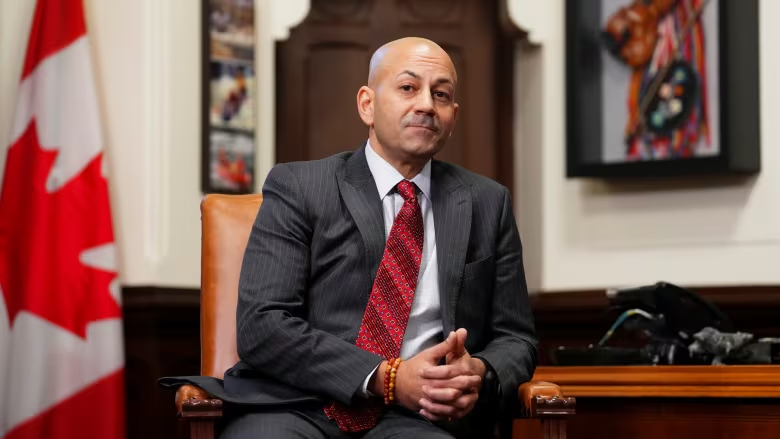Canada News
Canada and U.S. Department of Defence invest $35M in the Yukon’s Mactung mine

The Mactung property is located about eight kilometres northwest of MacMillan Pass in the Yukon. (North American Tungsten)
By
Fireweed Metals will get money for roads, electrical infrastructure and feasibility studies
The U.S. military’s missiles, bombs and bullets could one day contain Yukon tungsten.
Canada and the U.S. have announced they are investing in pre-development activities at Mactung mine. The project straddles the border between the Yukon and the Northwest Territories, and on the traditional territories of the Kaska and the First Nation of Na-cho Nyäk Dun.
The site contains one of the largest tungsten deposits on Earth.
A news release states the investment, which includes $12.9 million from Canada and $22.1 million from the U.S., will go toward 250 kilometres of road, transmission line upgrades, and “preconstruction activities” including feasibility studies.
The funding will come out of Canada’s critical minerals infrastructure fund and will go entirely to Fireweed Metals. The company purchased the mine from the Northwest Territories government in 2022. The Northwest Territories bought the project in 2015 as part of a bankruptcy sale involving the defunct Cantung mine.
Fireweed now owns both the Mactung and adjacent Macpass project, which it began exploring back in 2017.

“It borders our Macpass asset, and that was predominantly what attracted us to it,” said CEO Peter Hemstead. “But also you know, the more we looked into it and understood the world dynamics on tungsten, [the more] we were attracted to acquiring it.”
Tungsten’s exceptional heaviness, hardness and heat-resistance make it ideal for a variety of munitions — and an important resource for the United States.
The country has a strained diplomatic relationship with China, the world’s largest producer of tungsten.
Dr. Laura Taylor-Kale is assistant secretary of defence for industrial base policy with the United States Department of Defence.
“Tungsten is used in a diverse set of DoD systems and is essential to national security,” she said in a release. “The United States is overly reliant on overseas sources of tungsten and a secure North American supply for this commodity will mitigate one of our most critical material risks.”
Na-Cho Nyäk Dun has ‘moral opposition’ to arms manufacturing
Fireweed’s project proposal was filed to the Yukon Environmental and Socio-economic Assessment Board on Monday, Dec. 9 — four days before Friday’s announcement.
A spokesperson for the First Nation said all it knows about the project so far is what is in the news release.
Adrienne Hill is manager of implementation and governance with Na-cho Nyäk Dun (NND).
“NND has moral opposition to weapons production,” said Hill. “The link between this mine and missile production raises ethical questions about supporting industries tied to conflict and violence.”

Hill said Canada and the U.S. are bound to operate according to disarmament objectives outlined by the UN Disarmament Commission.
“When the consultation process begins … Na-Cho Nyäk Dun will seek to partner with Canada and the U.S. to collaborate and advocate actively with disarmament objectives.”
Hill also cited environmental concerns, such as the excessive water consumption she says is associated with mining tungsten and risks to biodiversity.
When asked about Na-cho Nyäk Dun’s response to the initiative, Hemstead said “we had meetings with Chief Hope [in November]. And you know, the Yukon regulatory body requires us to continue to keep our rights holders well-informed of our operations and activities in that area.”
Premier calls Mactung project ‘incredibly important’
“It’s not just important for the Yukon,” said Yukon Premier Ranj Pillai. “It straddles the border between the Yukon and the Northwest Territories. It’s incredibly important for First Nations communities that have an opportunity to partner with the company that is moving that project forward.
“I think it’s incredibly important for North America … from a security and defence perspective.”
Pillai said he understands there is enough tungsten at Mactung to supply the U.S. Department of Defence for the next 50 years.

Caitlin Cleveland, the N.W.T.’s minister of education, culture and employment, shared Pillai’s enthusiasm in a statement.
“During a recent meeting with Fireweed Metals … I reaffirmed our government’s commitment to economic development and to working together to advance Mactung,” she wrote.
“By advancing resource development projects in the North, we can support economic growth, job creation and climate action while strengthening partnerships with Indigenous groups and international allies.”
Kaska Dena leadership and the federal government did not respond to requests for comment by deadline.





















